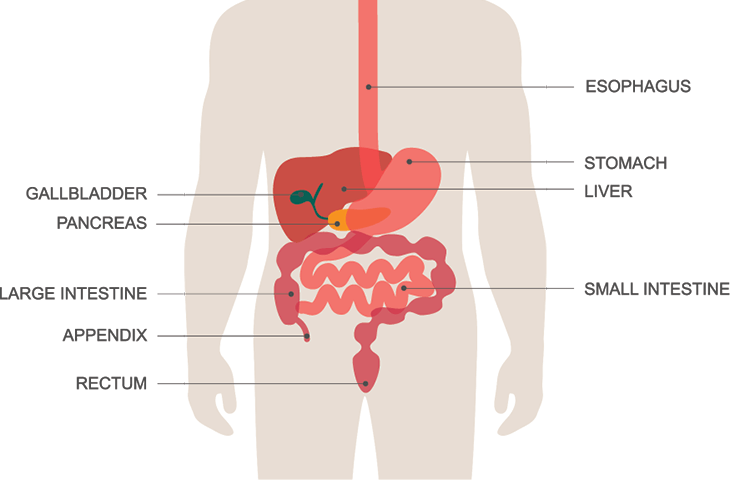Navigating the journey of looking after someone with a stoma can be as tough as it is satisfying. With the right knowledge and tools, carers can dramatically enhance the quality of life for their liked ones or customers. This article aims to supply thorough assistance on handling stoma care effectively, providing vital tips and insights customized for caregivers.
What is a Stoma? Understanding the Basics
A stoma is an operatively created opening in the body that allows waste to leave when normal bodily functions are interfered with. This could occur because of different clinical conditions, including cancer, inflammatory bowel disease, or distressing injury. The stoma connects the digestive system or urinary system to the outdoors, facilitating waste elimination.
Types of Ostomies
Colostomy: An opening from the colon. Ileostomy: An opening from the ileum (part of the small intestinal tract). Urostomy: An opening from the urinary system.Each kind needs particular treatment protocols, making stoma care training for carers essential.
The Value of Stoma Care Training for Carers
Stoma care training gears up carers with required skills and knowledge to offer optimal care to individuals with ostomies. This training not only improves caregivers' confidence however likewise ensures they can manage complex bowel care effectively.
Why Invest in Complex Bowel Care Training?
- Enhanced Knowledge: Understand various types of stomas and their particular needs. Improved Treatment Techniques: Find out finest techniques in stoma management. Support Networks: Get in touch with other carers and professionals.
Investing in programs like the NDIS complex bowel care training can substantially benefit both caregivers and those they assist.
Navigating Stoma Adjustments: Important Tips for Carers
When caring for an individual with a stoma, it's vital to navigate modifications successfully. Below are some necessary tips that every carer ought to take into consideration:
1. Keep Open Communication
Open discussion in between you and your customer or enjoyed one causes better understanding and assistance. Routine check-ins permit you to identify any kind of problems very early on.
How Can I Encourage Communication?
Encourage inquiries about their experience with their stoma. Develop a secure space where they feel comfortable talking about any pain or issues they may face.
2. Understand Ostomy Care Supplies
Familiarize yourself with various ostomy products readily available in the marketplace, consisting of bags, adhesives, and skin barriers customized for different types of stomas.
What Are Common Ostomy Products?
- Pouching systems Adhesive removers Skin barrier creams
Having a substantial understanding will certainly aid you select ideal products throughout your caregiving journey.
3. Regular Skin Care Routine
Proper skin treatment around the stoma is essential to stop irritability and infections. Establishing a routine is key.
What Must My Regular Include?
- Cleaning the location gently Applying skin barrier paste if needed Monitoring for indicators of irritation
Keeping an eye on skin condition will certainly assist make certain lasting health and wellness for people with ostomies.
4. Manage Dietary Adjustments
Diet plays a substantial duty in taking care of result from a stoma. Comprehending which foods may cause gas or clogs can make life easier for both carers and patients.
How Can Diet plan Effect Stoma Care?
Certain foods might cause raised outcome or smell; for this reason dietary adjustments could be necessary based upon private tolerance levels.

5. Psychological Assistance Is Key
Caring for someone post-surgery can be psychologically exhausting for both events included. Supplying emotional assistance assists alleviate stress and anxiety pertaining to lifestyle changes.
How Can I Provide Psychological Support?
Listening actively and validating feelings can make a considerable distinction in just how people cope with their new truth post-stoma surgery.
Training Opportunities Available for Carers
There are numerous training courses readily available created specifically for enhancing skills related to bowel care management:
Complex Digestive tract Care Course Overview
These programs cover various topics such as taking care of emergency situations, identifying complications, and creating personalized care strategies based upon person history-- basically forming a strong structure whereupon efficient caregiving can be built.
Stoma Treatment Training Programs
Programs focusing particularly on ostomy monitoring will certainly dig much deeper into strategies customized towards keeping healthy stomal sites while guaranteeing comfort throughout day-to-day activities.
Practical Tips for Managing Day-to-day Challenges
Every day offers new difficulties when caring for somebody with a stoma. Below are useful methods that may assist:
1. Organize Materials Efficiently
Maintain an arranged supply terminal where all needed products are conveniently available throughout changing routines.
What Items Need to Be Included?
- Spare pouches Adhesive strips Cleaning wipes
A well-organized configuration saves time and ostomy care reduces tension during pouch changes!
2. Educate Self-Care Techniques
Empower your client by teaching them exactly how to handle their own ostomy if they are able; this advertises self-reliance and confidence over time.
What Self-Care Techniques Ought to Be Taught?
Start by demonstrating pouching methods prior to enabling them hands-on method under guidance till they feel comfortable doing it themselves!
FAQ Section
1. What is an ostomy?
An ostomy is a surgical procedure that produces an opening (stoma) allowing waste or urine to leave when typical bodily functions can not take place as a result of clinical issues like cancer or inflammatory bowel diseases.
2. How often must I transform an ostomy bag?
Typically, ostomy bags require altering every 3-- 7 days depending on specific conditions; nevertheless, always consult doctor pertaining to certain referrals customized toward each person's needs!
3. Can diet impact my stoma?
Yes! Specific foods might cause gas buildup or blockages impacting overall convenience levels; consequently reliable nutritional management adds significantly towards improved lifestyle post-surgery!

4. What indications show complications?
Signs could include inflammation around stomas (showing potential infection), too much leakage from pouches showing bad seal adherence/fit and so on-- prompt interest needs to be sought if observed!
5. Exist support networks available?
Absolutely! Numerous organizations give sources attaching individuals living with ostomies & & caretakers alike using guidance/emotional assistance with shared experiences promoting community bonds!
6. Where can I locate digestive tract care courses?
Look into neighborhood wellness organizations supplying specialized training chances covering everything from standard principles up via progressed techniques focused solely upon intricate instances including nuanced demands bordering digestive tract management scenarios!
Conclusion
Caring for someone browsing life changes due to having gone through surgical procedure leading to creation of a synthetic exit point demands perseverance paired along with educated understanding got using committed instructional initiatives such as those supplied via NDIS complex bowel care training opportunities along side various other relevant coursework choices available today! By executing these methods discussed throughout this write-up while continuing to be alert towards all natural wellness encompassing emotional elements as well-- carers will definitely locate themselves better furnished at successfully supplying caring support making it possible for smoother transitions experienced by those left within their qualified hands!
In recap, navigating these waters requires time yet being aggressive translates directly into positive end results-- both physically & & mentally-- for every person involved!